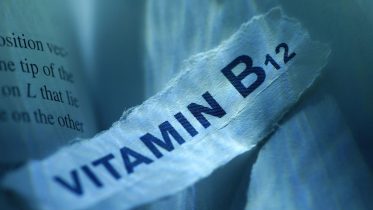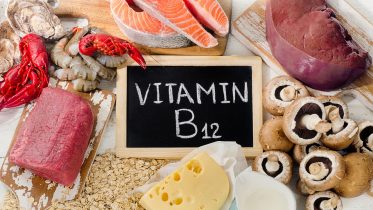
Vitamin B12
Vitamin B₁₂, also known as cobalamin, is a water-soluble vitamin involved in metabolism. It is one of eight B vitamins. It is required by animals, which use it as a cofactor in DNA synthesis, in both fatty acid and amino acid metabolism. It is important in the normal functioning of the nervous system via its role in the synthesis of myelin, and in the circulatory system in the maturation of red blood cells in the bone marrow. Plants do not need cobalamin and carry out the reactions with enzymes that are not dependent on it. Vitamin B₁₂ is the most chemically complex of all vitamins, and for humans, the only vitamin that must be sourced from animal-derived foods or from supplements. Only some archaea and bacteria can synthesize vitamin B₁₂. Most people in developed countries get enough B₁₂ from the consumption of meat or foods with animal sources. Foods containing vitamin B₁₂ include meat, clams, liver, fish, poultry, eggs, and dairy products.

